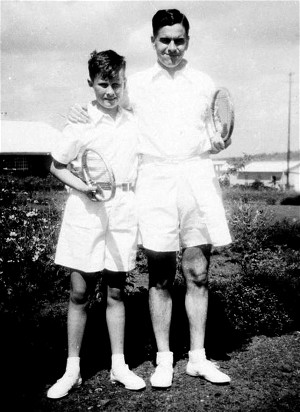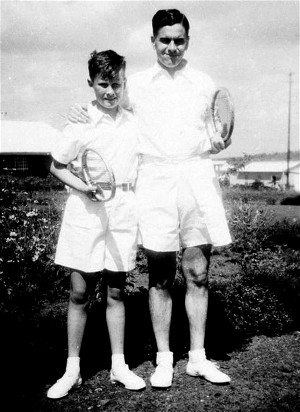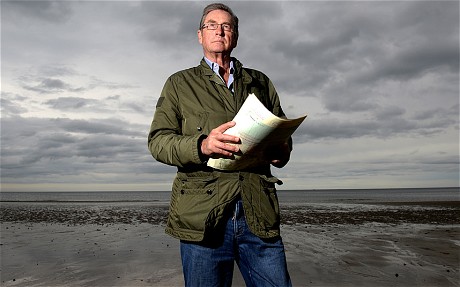D-day was the day over 155,000 allied troops, marines, airmen and naval personnel crossed the channel and invaded Normandy in France. The soldiers were on their way to embark on a war to liberate Europe from German hold. The day was June 6th 1944.
One of the brave men among the hundreds of thousands of British men on this mission was the father of Lord Michael Ashcroft. With original maps and recordings from his father, Lord Ashcroft marked the 70th anniversary of the war by retracing his father’s step.
Standing in front of the statue of field Marshal Montgomery, who was in charge of all the land forces that came ashore Normandy, Lord Ashcroft narrates the events of that day as was told by his father.
His father was among the 30,000 soldiers from The South Lancashire Regiment that landed on Sword Beach and was attacked with anti-tanks, mortars, machine-guns and rifle fire.
On getting to Sword Beach, the place where his father was injured and many service men were killed, Ashcroft talked about how his father escaped death during the war. According to him, his father would have died in the battle, if a German sniper’s bullet that was 88mm had been just two feet to one side of his right arm. His father was moving across the beach at the time he was shot.
He said his father was able to apply a field dressing to his wound after finding a place to do that. And according to his father,neither was it painful nor seems to bleed a lot.
But even though his father was lucky enough not to be seriously injured by the shot, his comrade, Lieutenant Colonel Burbury was not. Burbury, who was two feet to his father’s side, was shot in the chest by snipers. He died from the shot.
But the brutal attack was no news to his father. According to what he told Lord Ashcroft, they were already told to expect a 75% casualty (dead or wounded) on those beaches on that first assault as it was going to be a danger zone. And with fear in their hearts, the men made their journey to Sword Beach.
Lord Ashcroft said when the boys got to Snow Beach on D-Day, they had to run under enormous firing shots from machine guns and snipers fire up to the top of the beach, The Telegraph reports.
Another place Lord Ashcroft visited as part of the journey was the Hermanville War Cemetery. It is one of the graves commissioned to accommodate the fallen heroes. And he was there to pay his respect to Colonel Burberryand lay a cross at the foot of his grave.
Speaking about Colonel Burberry, he said he was 10 years old the first time his father told him what happened to them on that day. And since then, he has always remembered the name.
Colonel Burberry died on 7th June 1944, at the age of 38. It was a day after the D-Day. It’s a very sombre occasion and very reflective he said about his moments at the graveyard – while standing in front of Burbury’s grave. He was glad he visited it, he said.
His father Eric Ashcroft, who was born in 1917, died in 2002.


